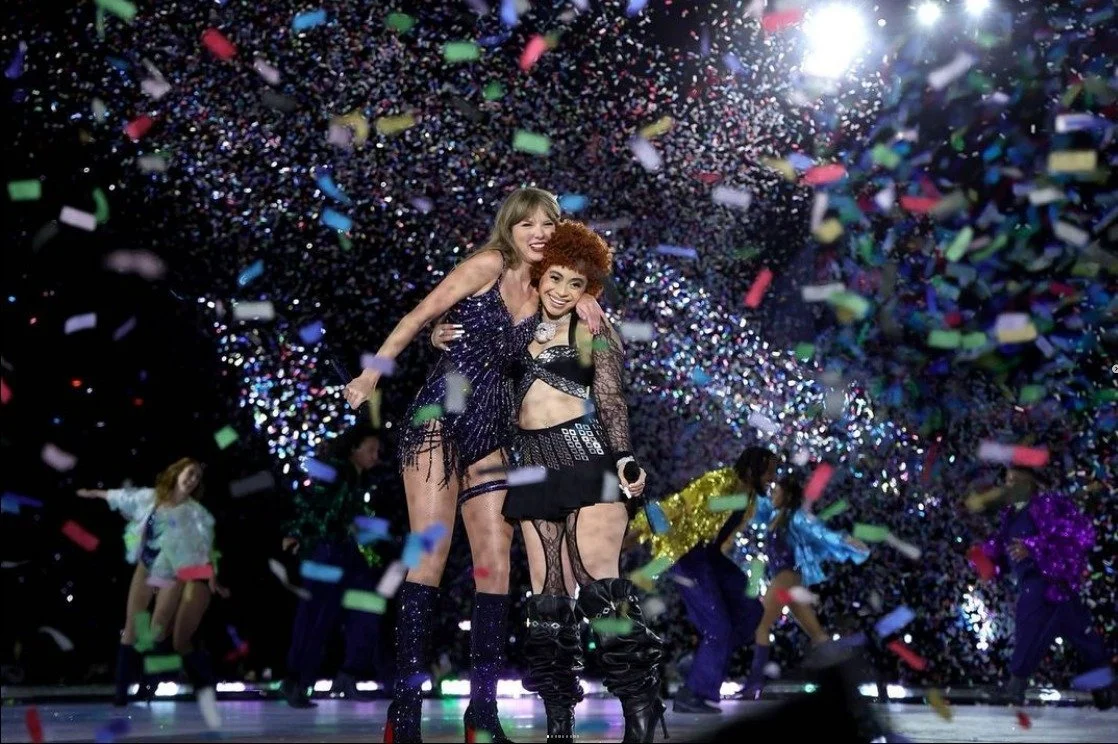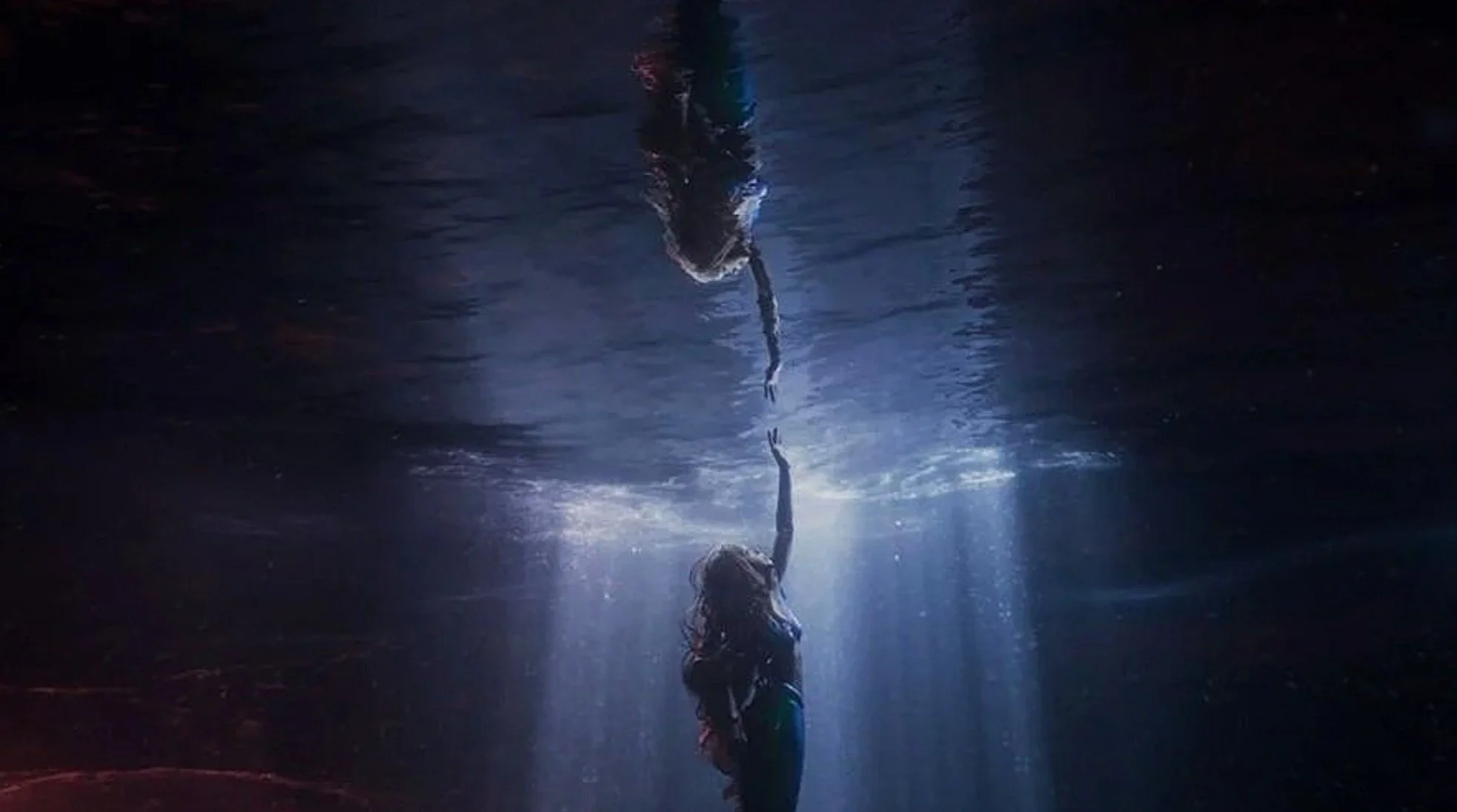Taylor Swift in her Element in New folklore | Review
Studio Recorded ‘folklore’ 2020 LP By Taylor Swift; Album Cover
While the greater part of us went through the most recent four months putting on some variety of "the quarantine 15," Taylor Swift has been covertly taking a shot at the "Folklore" 16. Sprung Thursday night with not exactly a day's notification, her eighth collection is a completely adjusted assortment of tunes that seems like it was a very long time in the intuitive creation, not the result of a quarter-year of record sharing from astonishing disconnection. Psyche you, the words "pandemic hero" ought to likely be held for real forefront laborers and not topline artistes. In any case, there's a touch of Rosie the Riveter soul in how Taylor Swift has become the principal significant pop craftsman to convey a first-position collection that went from germination to being totally secured down amidst a national lockdown.
The topics and tone of "Folklore," however, are somewhat less "We can do it!" and somewhat more "Can we do it?" Because this new assortment is Taylor Swift's most unmistakably thoughtful — rather than secretively intelligent — collection since the fan top pick "Red." Actually, that is putting it mildly. "Red" appears as though a Chainsmokers collection contrasted with the completely without banger "Folklore," which satisfies the primary portion of its title by stripping itself of any waiting hints of Max Martin-ized move pop and introducing Ms. Swift, over again, as your preferred new outside the box electro-people/chamber-pop balladeer. For fans that savored these feelings of Taylor Swift's before, it will come as a side of her they know and love very well.
For any individual who despite everything has a year ago's "You Need to Calm Down" fundamentally at the top of the priority list, it will come as a shocking demonstration of manual downshifting into really quieting down. At any rate this one won't require a collection length Ryan Adams revamp to persuade anybody that there's songwriting there. The best examination may be to take "Clean," the unrepresentative conclusion of "1989," and… envision an entire collection of that. Extremely, it's difficult to recollect any pop star in the course of our lives that has enjoyed a progressively genuine demonstration of sonic palette purifying.
The tone of this discharge won't come as a 12 PM stun to any individual who took spoilers from the declaration prior in the day that a lion's share of the tracks were co-composed with and delivered by the National's Aaron Dessner, or that the man supplanting Panic! at the Disco's Brendon Urie as this present collection's solitary two part harmony accomplice is Bon Iver. Regardless of how much credit you may have given Swift in the past for speculation and working outside of her case, an alarmed snicker may have been all together for exactly how sudden these names felt on the bingo card of melodic dignitaries you expected to discover the lady who simply put out "Me!" working with straightaway. Be that as it may, her imaginative instinct hasn't drove her into an oil-and-water coordinated effort yet. Dessner ends up being a perfect accomplice, with as much virtuosic, multi-instrumental expertise (especially valuable in a pandemic) as the most preferred essayist maker on a year ago's "Sweetheart" collection, Jack Antonoff.
He, as well, is available and represented on "Folklore," to a marginally lesser degree, and together Antonoff and Dessner make for a shockingly very much coordinated care staff label group. Taylor Swift's collabs with the National's MVP obviously set the pace for the undertaking, with a ton of fingerpicking, genuine strings, smooth drum programming and Mellotrons. You can detect Antonoff, in the tunes he did with Taylor Swift, attempting to meet the state of mind and style of what Dessner had done or would do with her, and drawing out his own lesser-known acoustic and delicately organized side. As great of a work as the collection seems to be, however, it's normally not very difficult to make sense of who chipped away at which tune — Dessner's commitments regularly feel like about neo-old style piano or guitar riffs that Swift toplined over, while Antonoff works somewhat more toward buttressing marginally progressively recognizable sounding pop tunes of Taylor Swift's, spruced up or down to meet the more dismal sounding event.
For certain fans, it may take several twists around the square with this altogether different model to become re-acclimated with how there's as yet a similar force in the engine here. Furthermore, that is actually all Swift, whose virtuoso for conversational songs and skill for giving each ensemble a telling new curve each time around stay indisputable brand names. Specifically, it's more of a mixed bag than all the more obviously self-portraying collections like "Lover" and "Reputation" before it have been. Taylor Swift has consistently depicted her collections as resembling journals of a specific timeframe, and a couple of tunes here clearly fit that bill, as continuations of the freshly discovered satisfaction she investigated in the last collection and a half. But on the other hand there's a further extent of fictionalization than maybe she's away for before, including what she's depicted as a set of three of melodies rotating around a secondary school love triangle. The way that she alludes to herself, by name, as "James" in the melody "Betty" is a decent marker that not everything here is torn from the present features or journal passages.
In any case, heck, some of it sure is. Anybody searching for melodious Easter eggs to affirm that Swift despite everything draws from her own life will be especially satisfied by the tune "Invisible String," such a "bless the broken roads that led me to you" type tune that discovers satisfaction in a momentum accomplice who once wore a greenish blue shirt while functioning as a youngster in a yogurt shop, even as Swift was longing for the ideal sentiment hanging out in Nashville's Centennial Park. (A fast Google search uncovers that, truly, Joe Alwyn was at one time a fundamental laborer in London's fro-yo industry.) There's likewise a guileful piece of self-referencing as Taylor Swift follows this brilliant string that decisively connected them: Bad was the blood of the song in the cab on your first trip to L.A.," she sings. The "dive bar" that was first settled as the area of a meet-adorable two collections back makes a return in this tune, as well.
With respect to real ill will? It scarcely includes into "Folklore," in any significant, genuine life-subtleties way, counter to her notoriety for composing verses that are superior to vindicate. Yet, when it does, hardship unto he who has crossed the T's and specked the I's on an agreement that Swift feels was a betray. In any event, we can emphatically presume what or who the genuine subject is of "Mad Woman," this current collection's one genuine snapshot of castigation. "What did you think I’d say to that?" Taylor Swift sings in the initial lines. "Does a scorpion sting when fighting back? / They strike to kill / And you know I will." Soon, she's adding gas to the fire: "Now I breathe flames each time I talk / My cannons all firing at your yacht / They say ‘move on’ / But you know I won’t / … women like hunting witches, too." A final blow is conveyed: "It’s obvious that wanting me dead has really brought you two together." It's a message tune, and the message is: Swift still truly needs her lords back, in 2020. What's more, is truly as yet going to need them in 2021, 2022 and 2023, as well. Regardless of whether the neighbors of the executive or executives she is envisioning truly mouth the words "f—you" when these adversaries pull up in their particular garages might involve projection, yet on the off chance that Swift makes some great memories envisioning it, a considerable lot of her fans will as well.
(A second such reference might be found in the reward track, "The Lakes," which may be found on select CD and vinyl versions not set to show up for half a month. There, she sings, "What should be over burrowed under my skin / In heart-stopping waves of hurt / I’ve come too far to watch some namedropping sleaze / Tell me what are my words worth." The remainder of "The Lakes" is a dream of a halcyon semi-retirement in the mountains — in which "I want to watch wisteria grow right over my bare feet / Because I haven’t moved in years" — "and not without my muse." She even envisions red roses becoming out of a tundra, "with no one around to tweet it"; dreams of an online networking free ideal world are extremely pandemic-uncontrolled.)
The other most clearly "confessional" tune here is likewise the most third-individual one, up to a telling point. In "The Last Great American Dynasty," Taylor Swift investigates the rich history of her ocean side house in Rhode Island, when renowned for being home to the beneficiary to the Standard Oil fortune and, after he passed on, his erratic widow. Taylor Swift has an excellent bygone era relating to the ladies who decades before her made individual coast-tenants go "there goes the neighborhood": "There goes the maddest woman this town has ever seen / She had a marvelous time ruining everything," she sings of the a distant memory widow, Rebekah. "Fifty years is a long time / Holiday House sat quietly on that beach / Free of women with madness, their men and bad habits / Then it was bought by me… the loudest woman this town has ever seen." (A fine franticness among glad ladies is another common subject.)
In any case, these models aside, the collection is eventually less clearly self-referential than the majority of Swift's. The single "Cardigan," which has somewhat of a Lana Del Rey feel (despite the fact that it's delivered by Dessner, not Del Rey's accomplice Antonoff) is a piece of Swift's anecdotal secondary school set of three, alongside "August" and "Betty." That sweater shows up again in the last tune, where Swift assumes the job of a 17-year kid freely saying 'sorry' for doing a young lady wrong — and which kicks into a triumphant key change toward the end that is directly out of "Love Story," on the off chance that anybody envisions Swift has totally proceeded onward from the soul of early victories.
"Exile," the two part harmony with Bon Iver, reviews another early Swift melody, "The Last Time," which made them exchange sections with Gary Lightbody of Snow Patrol. At that point, as now, she gives the person the principal word, and stanza, if not the last; it makes them concur with her accomplice on certain parts of their disintegration (“I couldn’t turn things around”/”You never turned things around”) and not totally on others ("Cause you never gave a warning sign," he lets out; "I gave so many signs," she dissents).
Picking two champions — one from the mollified heap, one from the tortured — prompts two decisions: "Illicit Affairs" is the best conning melody since, well, "Reputation's" difficult to-top "Getaway Car." There's less cleansing in this one, yet the same amount of sharp astuteness, as Swift depicts the more unremarkable subtleties of keeping up an issue ("Tell your friends you’re out for a run / You’ll be flushed when you return") with the spirit annihilating ones of how "what started in beautiful rooms ends with meetings in parking lots," as "a drug that only worked the first few hundred times" wears off in stealthy harshness.
Be that as it may, does Swift have a corker of an affection melody to steer the results of the collection back toward pleasantness. It's not "Invisible String," however that is a competitor. The boss sentiment tune here is "Peace," the title of which is marginally misleading, as Swift guarantees her playmate, or life accomplice, that that nature of serenity is the main thing she can't guarantee him. On the off chance that you like your adoration ditties practical, it's a touch of openness that renders all the compensatory pledges of devotion and boldness even more solid and profoundly stunning. "Every one of these individuals believe love's for show/But I would bite the dust for you stealthily."
That guarantee of protection to her planned is an update that Swift is very acceptable at keeping things near the vest, when she's not spilling all — characteristics that she appears to esteem and maintain in about unexpectedly equivalent measure. Maybe it's in yielding to the holiness of whatever she's holding dear right now that there are more outside accounts than before in this collection — including a tune alluding to her granddad raging the sea shores in World War II — even as she goes outside for new partners and sounds, as well. Be that as it may, what keeps you secured, as usual, is the thought of Swift as truth-teller, banned or unbarred, in a universe of pop turn. She's praising the covered time by taking hers off once more.
More related articles to read from this panel!
Also check out ‘The Aftermath’ Issue & other publications we’ve released below.
DOSSIER Mining releases in retrograde 'In the Land of Chromatica' with Lady Gaga's Designer Xtian de Medici, Keren Wolf, FX Pose's Naomi Cruz honoring the life of Grandfather Hector of House of Xtravaganza as our 1st cover story & Award Winning Anna Schollerova from Nora K's Whisper Naked Shadow TV mini-series and much much more!! The DOSSIER Mining compared to 'The Aftermath' issue, & others before it, is elevated reaching a better and truer essence of the Cyclolore Brand from many aspects & will so moving forward.































